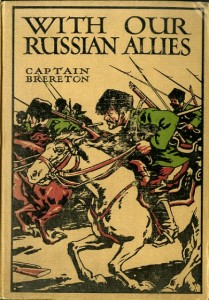This post was written for us by Karen Attar from Senate House Library Special Collections.
The conference “The Great War at Home” supplied an excellent opportunity for Senate House Library to provide a small complementary display. The only problem was how best to use a limited space. To the extent that we had a focus, that focus was publishing, and within the theme of publishing, Oxford University Press – especially timely in so far as a new History of Oxford University Press was published last year. In August 1914 seven members of the Modern History Faculty of the University of Oxford promptly set to and wrote Why We Are At War: Great Britain’s Case, in order to set forth the causes of war and the principles they believed to be at stake. This was the first of 87 OUP “pamphlets” about the War, although with 206 pages there was little of the pamphlet about it.
The Delegates of Oxford University Press approved the book’s publication on 16 October 1914, at their first meeting of the new academic year – by which time it was already in its third edition, the one displayed. The copy shown is from a collection of about 530 books and pamphlets pertaining to the War brought together by the pacifist historian Caroline Elizabeth Playne (1857-1948) in connection with the books she wrote about the conflict. The other OUP book shown is homage to Shakespeare for the tercentenary celebration of his birth: evidence of the continuation, albeit in severely limited form, of academic publishing during the war.
Children’s adventure stories set against the backdrop of the Great War and stereotypically full of valiant English youths and cowardly, underhand Germans, some of them spies, give insight into how in an unrealistic form the war pervaded children’s consciousness. An example of such literature was also displayed, With our Russian Allies by the extremely popular Frederick Sadleir Brereton.
All of these are examples of “The Great War in England”. We interpreted “home” more narrowly with Roll of War Service, 1914-1919, commemorating the losses in war of members of the University of London Officers Training Corps: seven officers and some 670 cadets.
In previous years Senate House Library’s contribution to the Anglo-American Conference of Historians has been purely to curate a display. This year the topic enabled the Library to give a conference paper, again seeing “home” as the host institution of the conference. Karen Attar, who had previously delved into the history of the Library during the Second World War, extended her researches backwards to the period 1914-1918 to talk about the University of London Library then. Documentary evidence is sparse compared with that for the Second World War, so that an initial fear was of not finding enough to say. There was no need to worry, and a twenty-minute talk expanded to fit forty minutes. Several interesting points emerged in the course of preliminary reading, such as better air raid precautions for the First World War than for the Second, and a suggestion that books would be safer on the central University’s premises in London than in Cambridge.

